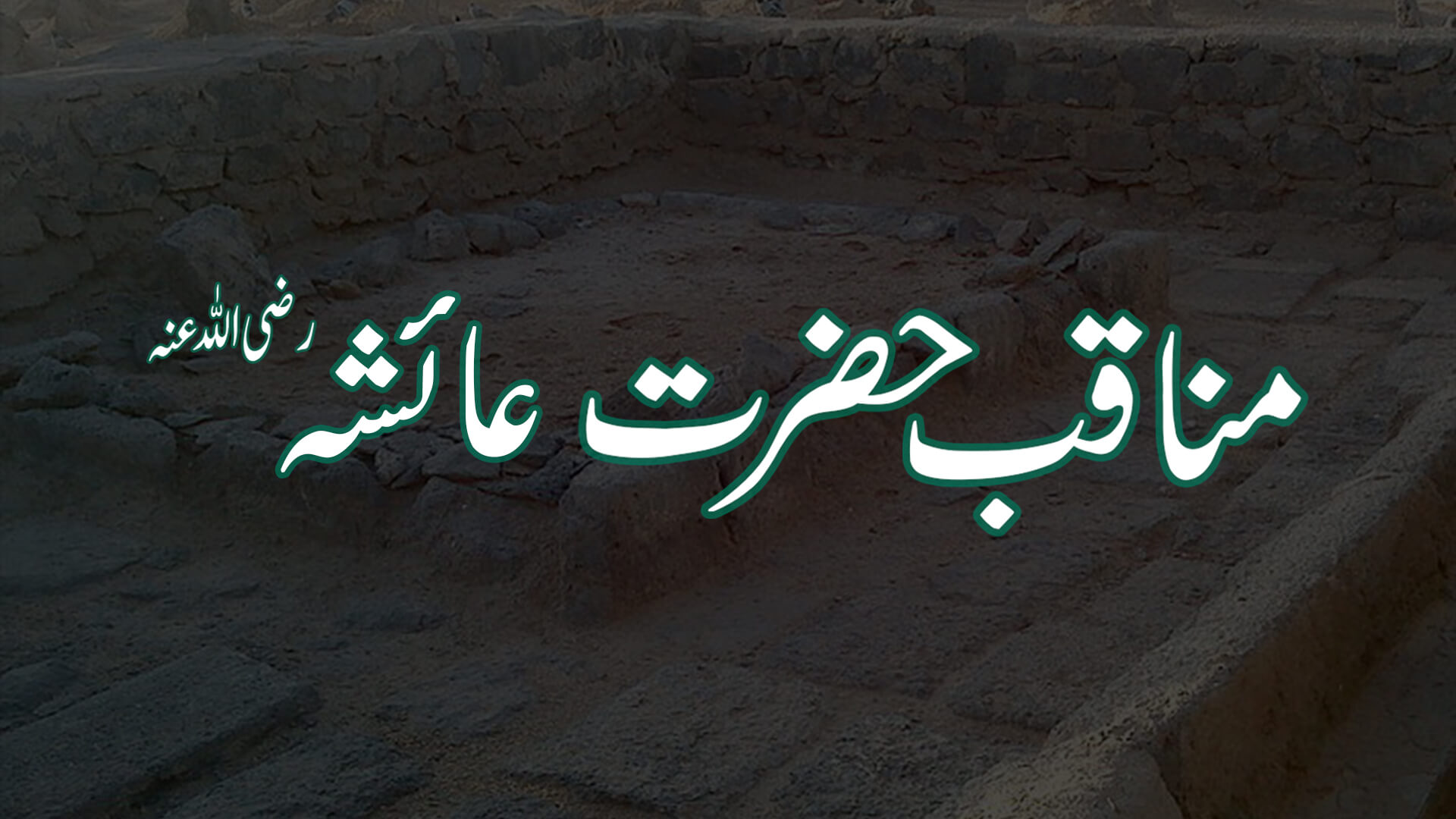Hazrat Aisha (رضی اللہ عنہا) – The Beloved Wife of Prophet Muhammad (ﷺ)

Hazrat Aisha bint Abu Bakr (رضی اللہ عنہا) holds a unique and esteemed position in Islamic history. She was the beloved wife of Prophet Muhammad (ﷺ), the daughter of Hazrat Abu Bakr (رضی اللہ عنہ), and one of the most influential women in Islam. Her intelligence, knowledge, and contributions to the preservation of Islamic teachings continue to inspire Muslims worldwide.
Who Was Hazrat Aisha (رضی اللہ عنہا)?
Hazrat Aisha (رضی اللہ عنہا) was born into a noble family in Mecca, around 613-614 CE. She was the daughter of Hazrat Abu Bakr As-Siddiq (رضی اللہ عنہ), the closest companion of Prophet Muhammad (ﷺ) and the first Caliph of Islam. From an early age, she displayed remarkable intelligence and a deep love for learning.
At a young age, she was married to Prophet Muhammad (ﷺ), becoming one of his most beloved wives. She played a crucial role in spreading his teachings and was a source of immense knowledge in Islamic jurisprudence and Hadith.
Hazrat Aisha’s (رضی اللہ عنہا) Life with the Prophet (ﷺ)
Hazrat Aisha (رضی اللہ عنہا) was known for her love, devotion, and wisdom in her relationship with the Prophet (ﷺ). She accompanied him on various journeys, observed his daily life, and learned directly from him.
The Incident of Ifk (Slander)
One of the most difficult moments in her life was when she was falsely accused of wrongdoing. However, Allah revealed verses in Surah An-Nur (24:11-26) clearing her name and affirming her innocence.
The Last Days of the Prophet (ﷺ)
Hazrat Aisha (رضی اللہ عنہا) had the honor of being with the Prophet (ﷺ) in his final moments. He passed away in her arms, in her house, on 12th Rabi-ul-Awwal, 632 CE.
Hazrat Aisha (رضی اللہ عنہا) as a Scholar and Teacher
After the Prophet’s (ﷺ) passing, Hazrat Aisha (رضی اللہ عنہا) became a leading scholar of Islam. She narrated over 2,200 Hadiths, covering various aspects of Islamic teachings, including:
- Worship (Salah, Fasting, Zakat, Hajj)
- Ethical and moral conduct
- The personal life of the Prophet (ﷺ)
- Women’s rights and family matters
Many prominent companions of the Prophet (ﷺ) and later scholars sought her knowledge, making her one of the greatest teachers in Islamic history.
Her Contributions to Islam
Preserving Hadith and Sunnah: She played a key role in transmitting the sayings and actions of the Prophet (ﷺ).
Advocating for Women’s Rights: Hazrat Aisha (رضی اللہ عنہا) emphasized the importance of education for women in Islam.
Political and Social Influence: She was involved in important political events and advised many rulers.
The Passing of Hazrat Aisha (رضی اللہ عنہا)
Hazrat Aisha (رضی اللہ عنہا) passed away in 678 CE (58 AH) at the age of approximately 66 years. She was buried in Jannat-ul-Baqi, the famous cemetery in Medina, next to other companions of the Prophet (ﷺ).
Legacy of Hazrat Aisha (رضی اللہ عنہا)
Hazrat Aisha (رضی اللہ عنہا) remains an inspirational figure for Muslims due to her:
- Strong faith and devotion
- Deep knowledge of Islam
- Courage and leadership
- Unwavering love for the Prophet (ﷺ)
Her legacy continues to guide Muslim scholars, students, and women seeking knowledge and excellence in their faith.
Hazrat Aisha (رضی اللہ عنہا) was not only the beloved wife of Prophet Muhammad (ﷺ) but also a scholar, teacher, and role model for Muslims. Her immense contributions to Islam, her intelligence, and her unwavering dedication to the Prophet’s (ﷺ) mission make her a shining example for generations to come.
Poetic Tributes to Hazrat Aisha (رضی اللہ عنہا)
Throughout history, poets have honored Hazrat Aisha (رضی اللہ عنہا) for her wisdom, devotion, and contributions to Islam. Islamic poetry beautifully reflects her status, sacrifices, and love for the Prophet (ﷺ). Renowned poets like Mufti Ahmad Yar Naeemi, Muzaffar Warisi, Safiya Naz, and Shafiq Raipuri have composed heartfelt verses celebrating her virtues. These poetic tributes serve as a source of inspiration, reminding believers of her profound impact on Islamic history and her exemplary role as the Mother of the Believers.
| Title | Poet Name | Book Name |
|---|---|---|
Related Links
Manqabat Hazrat Ali Akbar (R.A)Manqabat Hazrat Abu Talib (R.A)